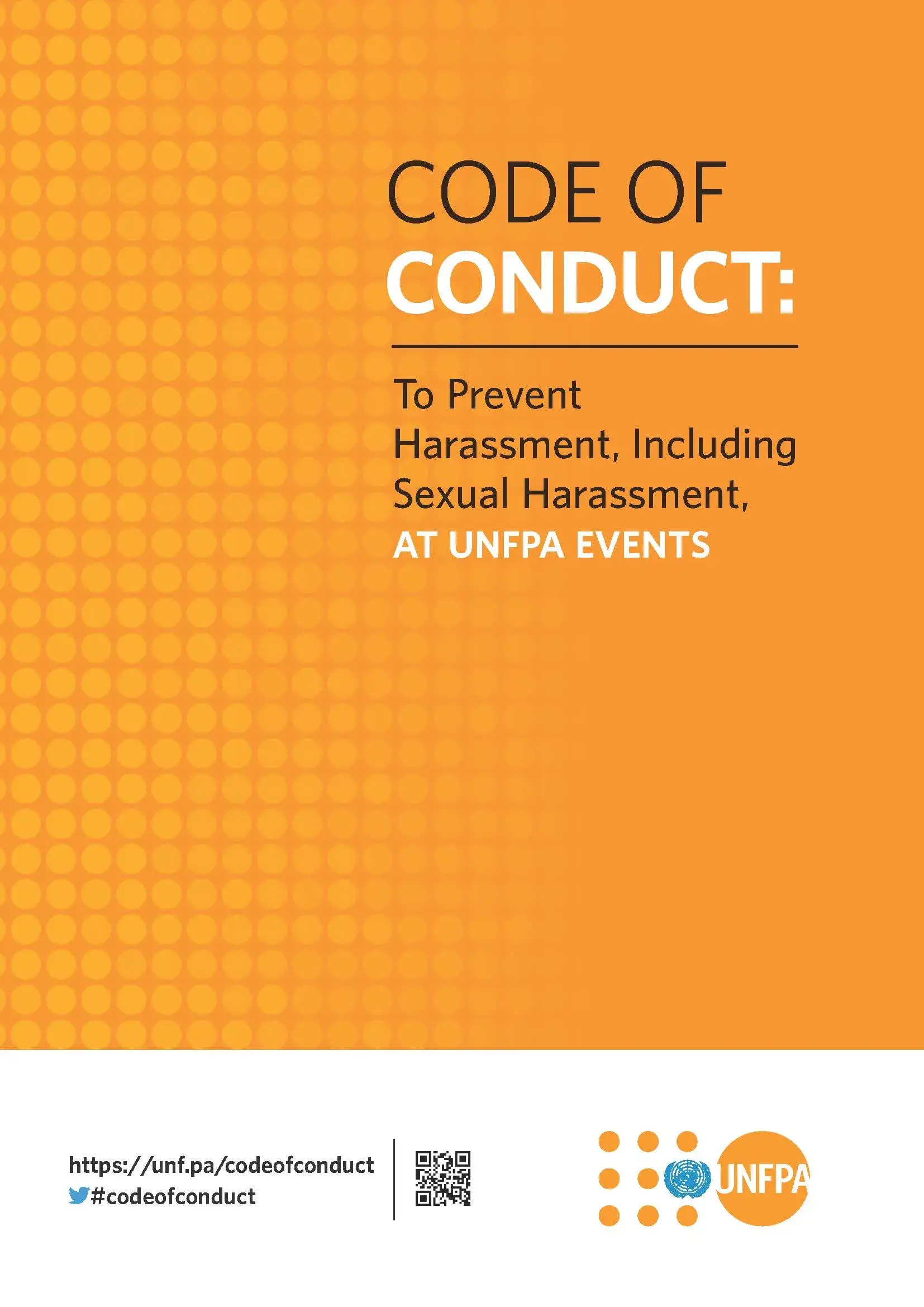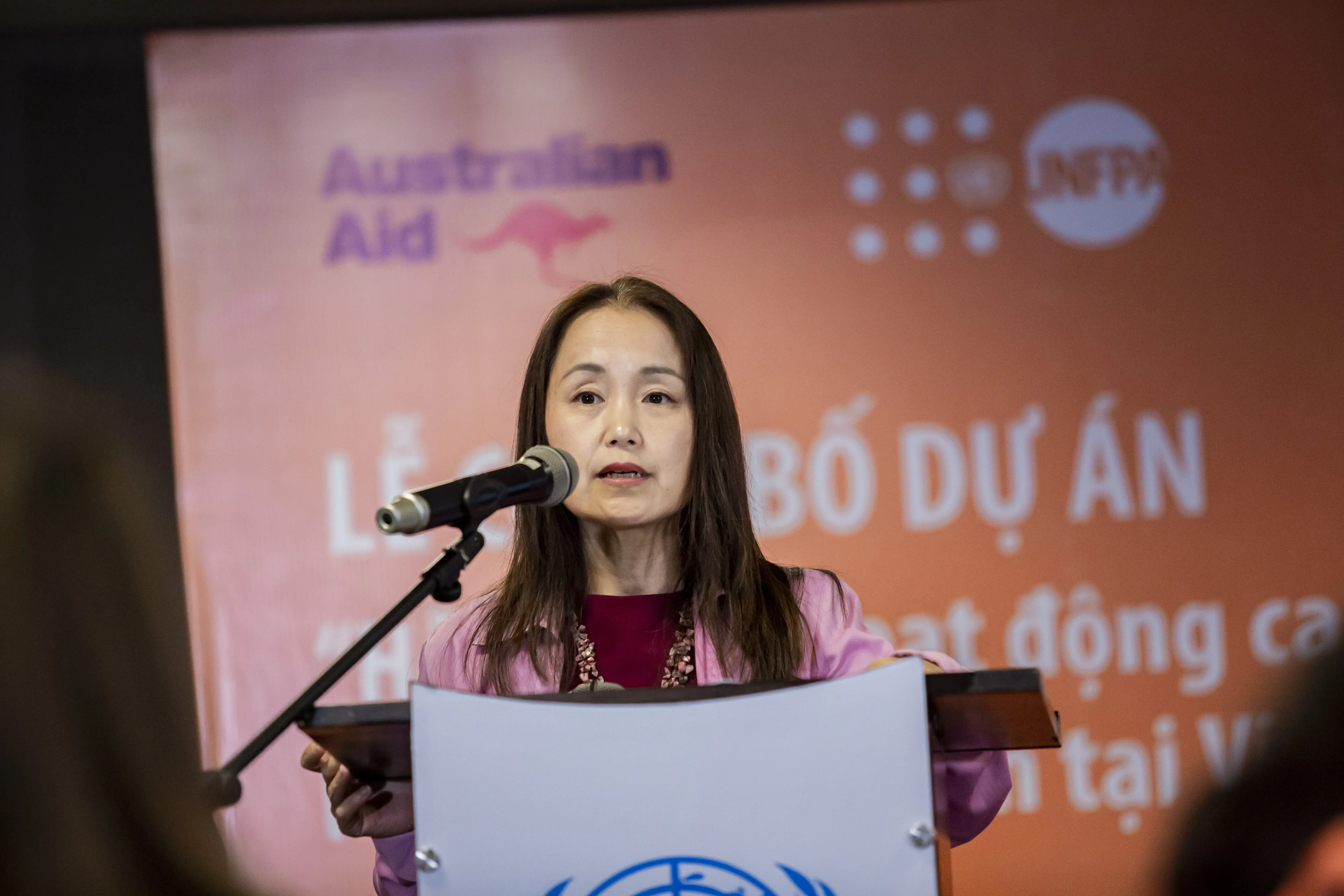PURPOSE
UNFPA is committed to enabling events at which everyone can participate in an inclusive, respectful and safe environment.
UNFPA events are guided by the highest ethical and professional standards, and all participants are expected to behave with integrity and respect towards all participants attending or involved with any UNFPA event.
APPLICABILITY
The Code of Conduct applies to any UNFPA event, which shall include meetings, conferences and symposia, assemblies, receptions, scientific and technical events, expert meetings, workshops, exhibits, side events and any other forum organized, hosted or sponsored in whole or part by UNFPA wherever it takes place, and any event or gathering that takes place on UNFPA premises whether or not UNFPA is organizing, hosting or sponsoring.
The Code of Conduct applies to all participants at a UNFPA event, including all persons attending or involved in any capacity in a UNFPA event.
Any other entity responsible for a UNFPA event commits to implementing the Code of Conduct.
The Code of Conduct is not legal or prescriptive in nature. It supplements, and does not affect, the application of other relevant policies, regulations, rules and laws, including laws regulating the premises in which the UNFPA event takes place and any applicable host country agreements.
PROHIBITED CONDUCT
Harassment is any improper or unwelcome conduct that might reasonably be expected or be perceived to cause offense or humiliation to another person. Harassment in any form because of gender, gender identity and expression, sexual orientation, physical ability, physical appearance, ethnicity, race, national origin, political affiliation, age, religion or any other reason is prohibited at UNFPA events.
Sexual harassment is a specific type of prohibited conduct. Sexual harassment is any unwelcome conduct of a sexual nature that might reasonably be expected or be perceived to cause offense or humiliation. Sexual harassment may involve any conduct of a verbal, nonverbal or physical nature, including written and electronic communications, and may occur between persons of the same or different genders.
Harassment and sexual harassment are particularly serious when committed against children (persons under the age of 18) or other individuals in a position of vulnerability.
Download PDF brochure here.




